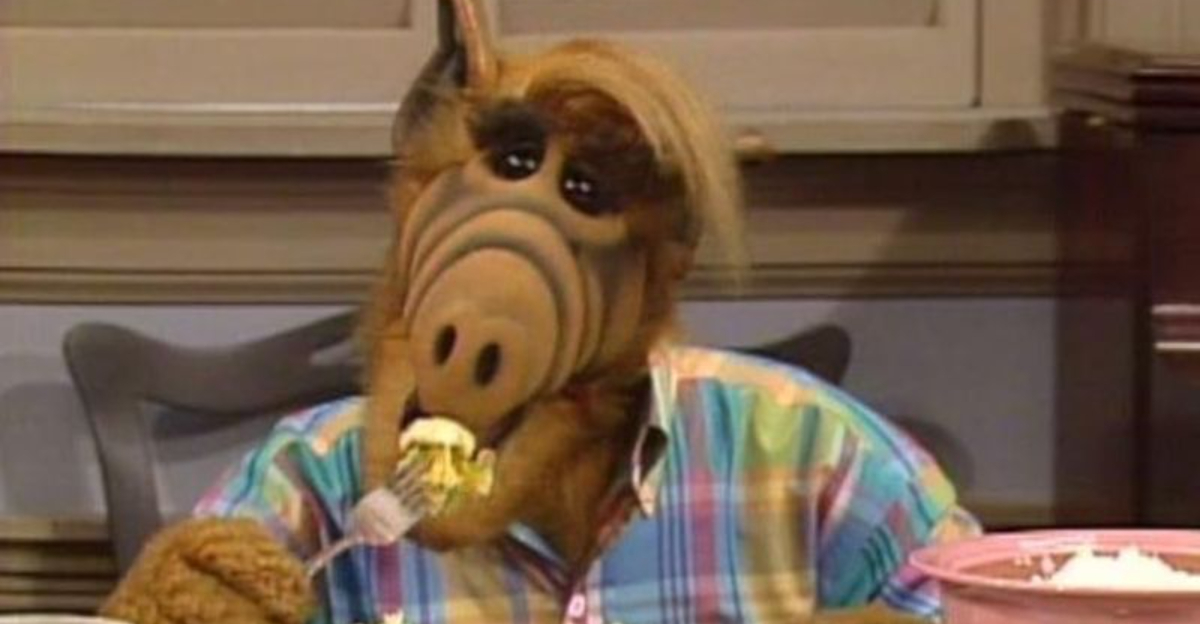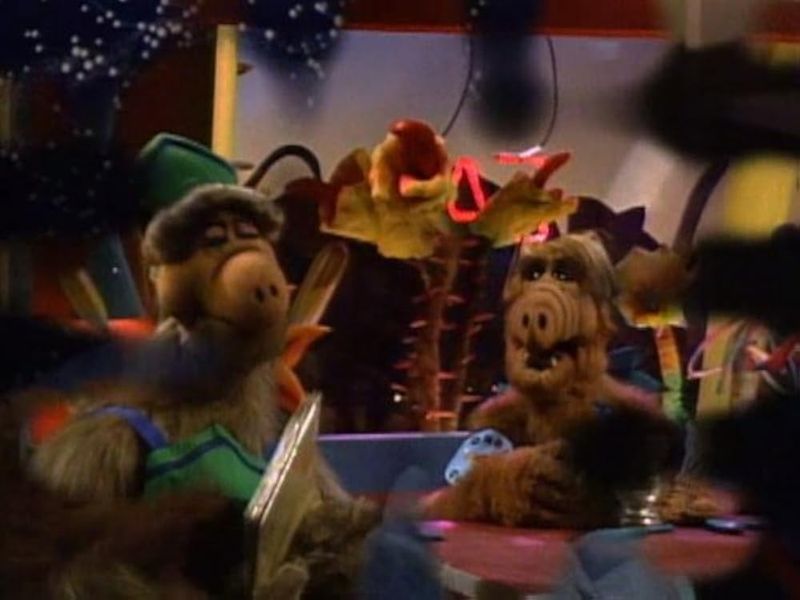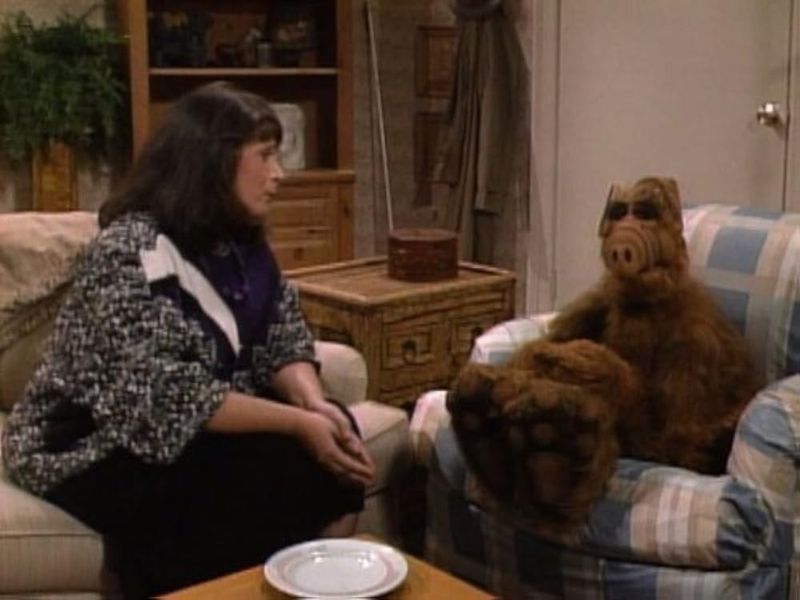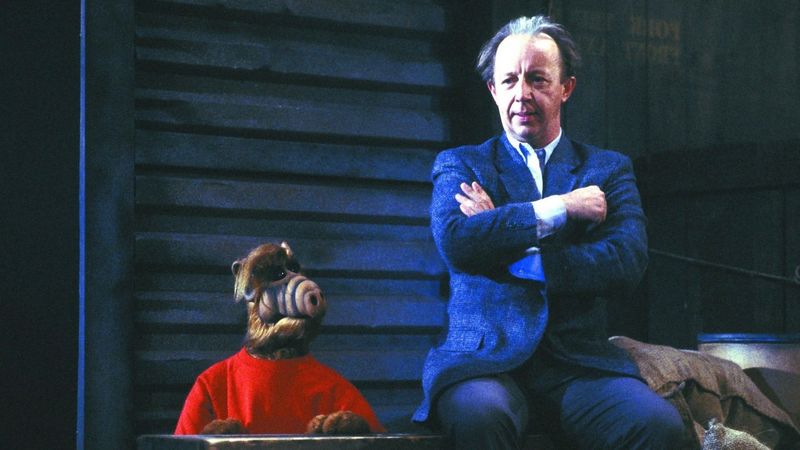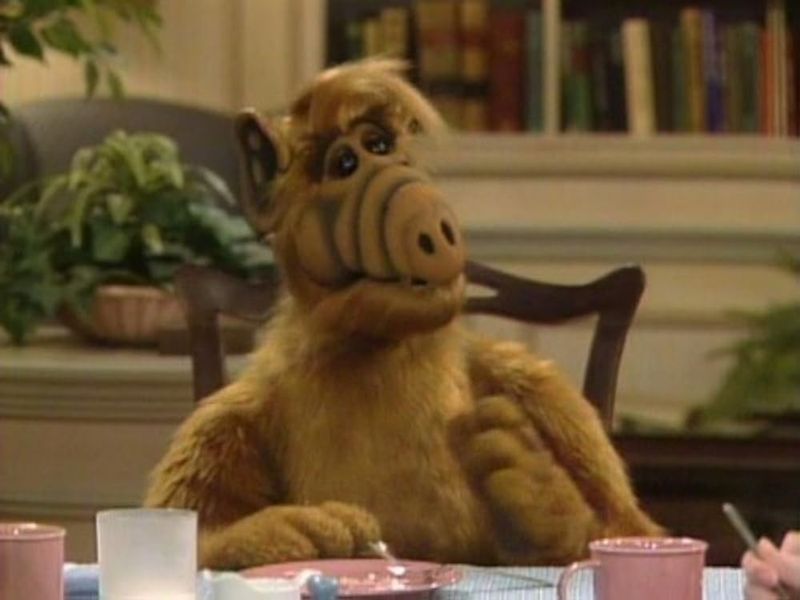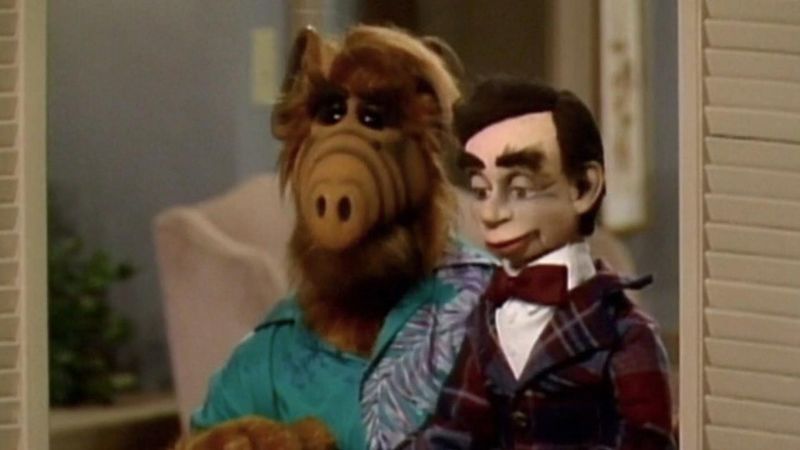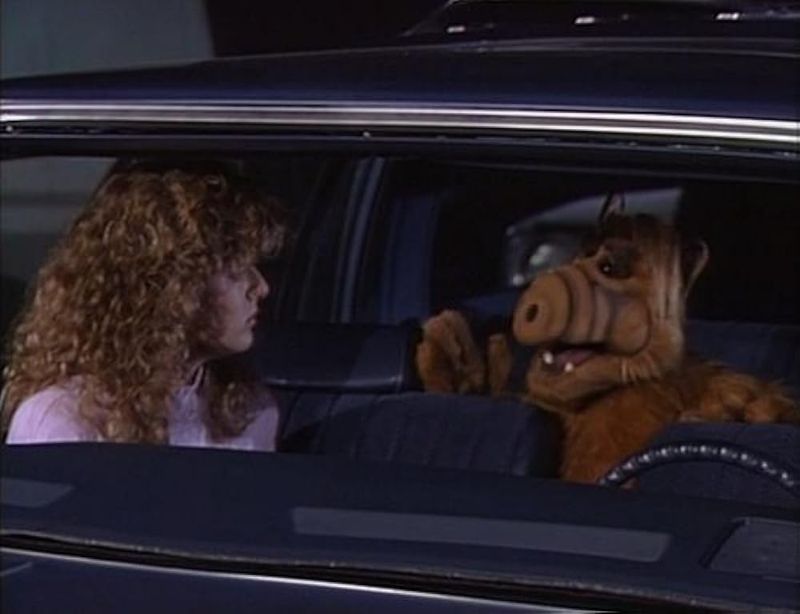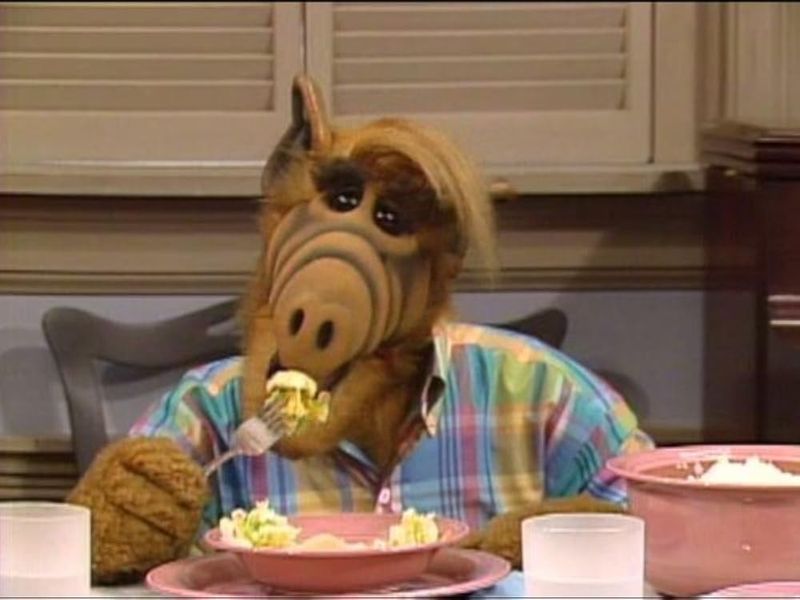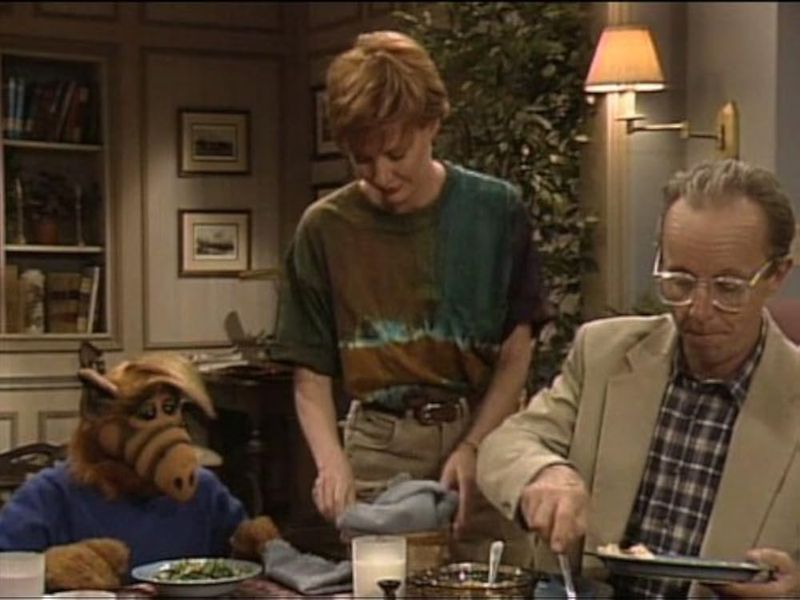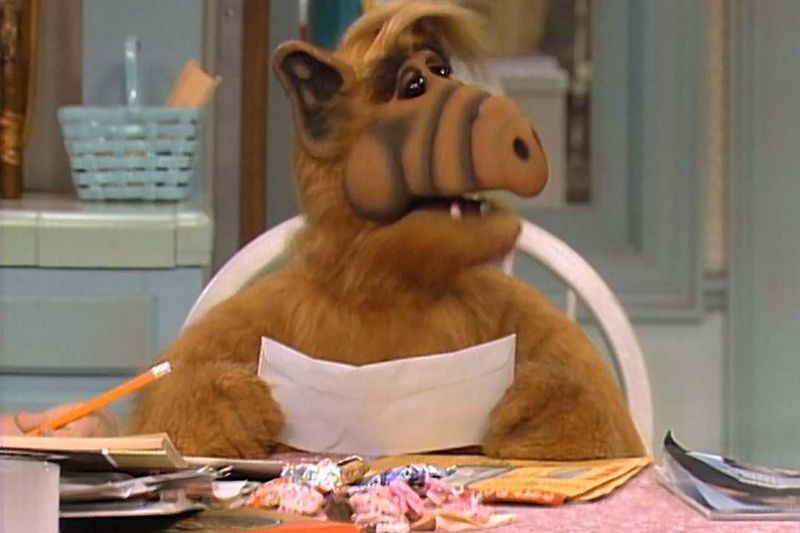The seemingly lighthearted sitcom ALF often disguised eerie and chilling narratives beneath its comedic exterior. These 13 episodes stand out as particularly unsettling, featuring horror elements that transform ordinary sitcom moments into psychological thrillers. From alien possession to existential dread, each episode delves into darker themes, blending humor with spine-tingling suspense. The following list explores these episodes, revealing how ALF’s adventures often unfolded like horror stories in disguise.
1. “Help Me, Rhonda” (Season 1, Episode 4)
With a sinister chuckle, ALF puppeteers Willie’s body, turning a comedic scene into a possession horror story. The distorted voice echoes eerily, reminiscent of a malevolent force overtaking an innocent soul. This episode’s unsettling atmosphere lingers long after the laughter fades. Wildly unexpected, the control ALF exerts over Willie’s actions feels like a dark twist worthy of any classic horror film. The viewer is left to ponder the limits of alien influence and where comedy ends and horror begins. Truly a blend of humor and horror, this episode pushes boundaries.
2. “For Your Eyes Only” (Season 1, Episode 10)
A neighbor’s curiosity spirals into paranoia as they become convinced the Tanners harbor a dark secret. Tension mounts with every glance through the blinds, capturing a Hitchcock-esque atmosphere of suspense. The alien twist adds humor, yet the shadow of mistrust casts a chilling pall. This episode dances on the edge of comedy and thriller, blending everyday suburban life with the uncanny presence of ALF. Paranoia thrives in this playful yet unnerving narrative. As suspicion snowballs, it becomes clear that not every secret is meant to be uncovered.
3. “Pennsylvania 6-5000” (Season 2, Episode 1)
What begins as a simple phone call quickly turns into a scene from a transformation horror film. ALF’s voice, changed to a monstrous growl, creates an unsettling soundscape akin to horror classics. The eerie, guttural noises clash with the cheerful sitcom setting, making for a bizarrely haunting experience. Laughs intermingle with chills as the distortion takes center stage. This juxtaposition of humor and horror crafts an episode that’s both unsettling and memorable, lingering in the mind like a ghostly echo.
4. “We’re So Sorry, Uncle Albert” (Season 2, Episode 5)
After accidentally killing Willie’s beloved plant, ALF’s attempt at resurrection is anything but natural. The plant returns with an unnatural vitality, echoing themes of resurrection horror. The humor of ALF’s antics belies a deeper unease as the plant grows ominously. With twisted leaves and a life of its own, it becomes a leafy specter haunting the Tanners’ home. This bizarre blend of pet resurrection and alien technology adds an eerie layer to the sitcom, making viewers question the limits of science and nature.
5. “Tequila” (Season 2, Episode 11)
Trapped by a relentless blizzard, ALF’s mind unravels in a surreal conversation with an animated tequila bottle. The layers of cabin fever set the stage for a darkly comedic exploration of sanity’s limits. As ALF’s hallucinations grow, the boundary between reality and imagination blurs. Amidst laughter, there’s an undercurrent of isolation and madness. The secluded setting amplifies the tension, echoing the psychological unraveling found in classic horror. Ultimately, this episode’s blend of humor and horror offers a chilling reflection on the mind’s fragility.
6. “We Gotta Get Out of This Place” (Season 2, Episode 14)
When a burglar invades the Tanners’ home, ALF must hide, turning the situation into a suspenseful home invasion thriller. The intruder’s obliviousness to the alien presence heightens the tension. Shadows dance as ALF uses cunning to avoid discovery. This episode weaves a narrative of suspense, with ALF’s mischievous nature adding unexpected levity. As the burglar inches closer to discovery, the audience is drawn into the lurking danger. A masterful blend of comedy and suspense, it keeps viewers on edge until the very end.
7. “Night Train” (Season 2, Episode 22)
Stuck on a train with a military officer on the lookout for aliens, ALF faces a spy thriller-like scenario with dissection at stake. The tight quarters and ever-present threat create a palpable tension. Each stop of the train pulses with suspense, as ALF’s discovery could mean drastic consequences. This episode expertly marries humor with high stakes, crafting a storyline that is as thrilling as it is entertaining. The looming danger never far off, it offers a gripping adventure with a dash of alien charm.
8. “Stop in the Name of Love” (Season 3, Episode 4)
Unable to walk, ALF turns into a demanding tyrant, reminiscent of a classic psychological manipulator. The Tanners, caught in his web of demands, are pushed to their limits. A touch of mischief in ALF’s eyes turns mundane requests into a darkly comedic power struggle. This episode cleverly explores themes of control, capturing the innate tension between caregiver and dependent. The result is a chillingly amusing take on manipulation, as ALF revels in his newfound authority. Manipulation has never been quite so entertaining.
9. “Fever” (Season 3, Episode 12)
When ALF falls ill, his symptoms transcend ordinary sickness into otherworldly phenomena. Speaking in tongues and unexpected levitations transform a typical family concern into supernatural spectacle. The laughter accompanying ALF’s antics can’t mask the underlying oddity of the situation. This episode brilliantly straddles the line between comedy and the bizarre, leaving audiences both amused and intrigued. As medical equipment buzzes and family members fret, ALF’s illness becomes a surreal, memorable experience. The fusion of comedy and strangeness creates an unforgettable viewing.
10. “Mind Games” (Season 3, Episode 18)
In a dreamscape of swirling colors and shifting realities, ALF traps Willie in an ethereal prison. This nightmare scenario combines elements of suspense and playful manipulation. The vivid, ever-changing landscape mirrors the unpredictability of a dream, while ALF’s playful interference adds a layer of complexity. Tension and whimsy meld as Willie navigates this surreal terrain, trapped between dream and reality. This episode captures the unnerving essence of dream horror, blending humor with an exploration of subconscious fears.
11. “Future’s So Bright, I Gotta Wear Shades” (Season 4, Episode 2)
ALF’s glimpse into a bleak future reveals the potential fallout of his presence in the Tanners’ lives. The vision, rife with divorce and despair, unfolds with a chilling inevitability. As humor underpins the dark vision, an unsettling truth emerges. This narrative masterfully contrasts wit with the grim possibility of loss. The eerie future serves as a compelling cautionary tale, blending the comedy of ALF’s antics with a sobering reflection on consequence. The episode resonates with both laughter and a haunting unease.
12. “Hungry Like a Wolf” (Season 4, Episode 10)
ALF’s belief that he’s transforming into a werewolf drives him to embrace his feral instincts. In the moonlit suburban night, his growls echo the classic werewolf lore. This episode captures the primal fear of transformation with a comedic twist. As ALF prowls the house, torn between alien and beast, the humor of his antics mingles with an undercurrent of dread. The portrayal of identity crisis mixed with supernatural elements offers a uniquely entertaining blend, bringing werewolf mythos into the sitcom realm.
13. “Consider Me Gone” (Series Finale)
The series finale leaves ALF facing an uncertain future, captured by the military with no resolution in sight. This cliffhanger ending resonates with existential horror, as dissection looms. Shadows and silhouettes craft an atmosphere of apprehension, contrasting the series’ usual humor with a grave undertone. ALF’s predicament reflects themes of confinement and loss, leaving viewers in suspense. This abrupt conclusion blends comedy with a stark reality check, offering a haunting end to the beloved series. The final episode remains a provocative and chilling farewell.
